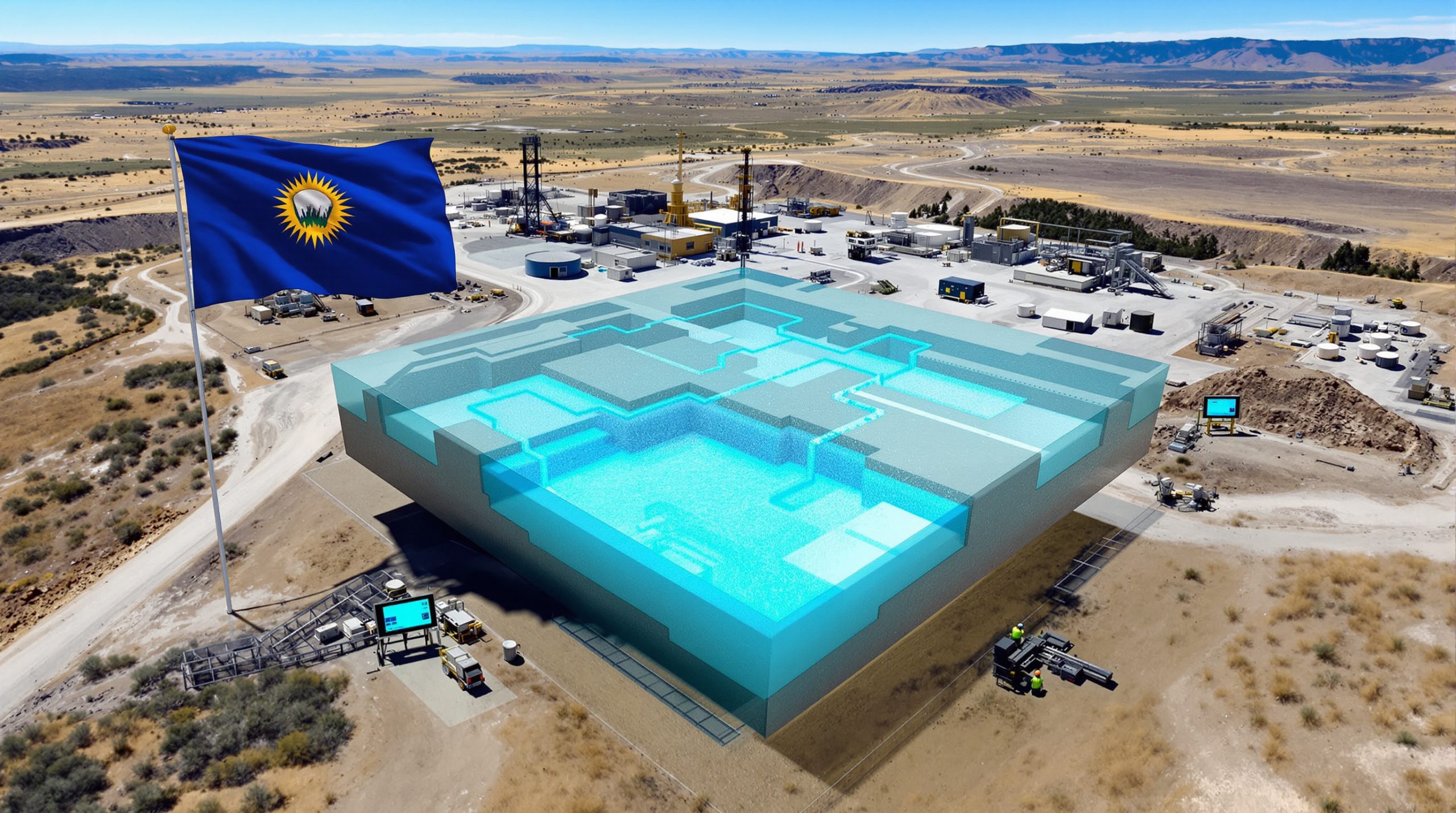Pakistan's LNG Dilemma: Seeking to Defer Qatari Cargoes
Pakistan is currently navigating a challenging energy crisis as it seeks to defer 177 Qatari LNG cargoes amid mounting financial pressure from its $5.6 billion contract obligations. This unprecedented request comes as the South Asian nation grapples with severe economic constraints and ballooning energy costs that threaten its fiscal stability.
The deferral request represents a significant portion of Pakistan's contracted LNG supply and highlights the growing tension between long-term energy security planning and immediate financial realities. With natural gas price trends playing a crucial role in Pakistan's energy mix, these developments could have far-reaching implications for the country's industrial output, electricity generation, and household energy access.
Understanding Pakistan's LNG Supply Agreements
Pakistan's relationship with Qatar in the LNG sector is built on two long-term supply agreements signed in 2016 and 2021. These contracts were initially viewed as strategic assets to ensure energy security, but have transformed into financial burdens under current economic conditions.
Key Contract Details:
| Contract Feature | First Agreement (2016) | Second Agreement (2021) |
|---|---|---|
| Duration | 15 years | 10 years |
| Annual Volume | 3.75 million tonnes | 3 million tonnes |
| Pricing Structure | 13.37% of Brent crude | 10.2% of Brent crude |
| Delivery Schedule | Regular monthly cargoes | Regular monthly cargoes |
The combined financial obligation of approximately $5.6 billion represents a significant strain on Pakistan's foreign exchange reserves, which have been under pressure due to multiple economic challenges including currency devaluation, inflation, and balance of payment issues.
How Has Pakistan's Economic Crisis Affected Energy Imports?
The request to defer LNG cargoes comes amid a perfect storm of economic challenges facing Pakistan. The country's financial situation has deteriorated significantly over the past two years, creating a cascade of problems for energy procurement.
Pakistan's Economic Indicators Affecting LNG Imports:
- Foreign Exchange Reserves: Dwindled to critically low levels, limiting capacity for dollar-denominated purchases
- Currency Devaluation: The Pakistani rupee has lost substantial value against the US dollar
- Current Account Deficit: Persistent imbalance between imports and exports
- Inflation Rate: Reached multi-decade highs, affecting purchasing power
- IMF Program Conditions: Stringent requirements for fiscal discipline limiting subsidies
These economic factors have created a situation where Pakistan cannot afford to maintain its previous level of LNG imports despite growing domestic demand. The government faces difficult choices between meeting energy needs and maintaining fiscal stability.
What Are the Implications for Pakistan's Energy Security?
The potential deferral of 177 LNG cargoes would create significant challenges for Pakistan's energy security framework, particularly as natural gas constitutes approximately 43% of the country's primary energy supply.
Critical Sectors Dependent on LNG in Pakistan:
- Power Generation: Many electricity plants run on natural gas
- Industrial Manufacturing: Textiles, fertilizer, and other key industries
- Commercial Businesses: Particularly in urban centers
- Residential Consumers: Cooking and heating needs for millions of households
- Transportation: CNG vehicles in major cities
Without adequate LNG supplies, Pakistan faces the prospect of increased load-shedding (planned power outages), industrial slowdowns, and potential social unrest as energy shortages affect daily life. The government must balance immediate financial relief against these longer-term consequences.
How Does This Compare to Global LNG Market Trends?
Pakistan's situation reflects broader trends in the global LNG market, where price volatility and supply constraints have created challenges for importing nations, particularly those with economic vulnerabilities.
Global LNG Market Dynamics:
| Factor | Current Trend | Impact on Importers |
|---|---|---|
| Spot Prices | Volatile with recent moderation | Unpredictable budgeting |
| Contract Terms | Shifting toward flexibility | Renegotiation opportunities |
| Supply Expansion | New projects coming online | Potential future relief |
| Geopolitical Factors | Increasing influence | Supply security concerns |
| Energy Transition Pressures | Growing | Policy uncertainty |
Other developing economies, including Bangladesh and various African nations, have faced similar challenges with LNG imports. However, Pakistan's request for deferral of such a large volume is particularly notable in scale and potential market impact.
What Options Does Pakistan Have for Energy Alternatives?
With LNG imports becoming financially challenging, Pakistan is exploring alternative energy sources to meet domestic demand. These alternatives come with their own advantages and limitations.
Energy Alternatives Under Consideration:
- Domestic Gas Production: Enhancing exploration and production of local reserves
- Coal Power: Increasing utilization of domestic coal resources
- Renewable Energy: Accelerating solar and wind power projects
- Nuclear Energy: Expanding existing nuclear power capacity
- Regional Pipeline Projects: Reviving stalled initiatives like TAPI (Turkmenistan-Afghanistan-Pakistan-India)
Each alternative presents its own timeline, investment requirements, and environmental implications. The immediate nature of the current crisis means that short-term solutions may need to be prioritized over optimal long-term strategies.
How Might Qatar Respond to Pakistan's Request?
Qatar's response to Pakistan's deferral request will be crucial in determining the path forward. As one of the world's largest LNG exporters, Qatar has significant leverage but also maintains important strategic relationships in the region.
Potential Responses from Qatar:
- Full Accommodation: Agreeing to all requested deferrals
- Partial Accommodation: Allowing some deferrals with modified terms
- Contract Renegotiation: Using this opportunity to revise pricing or volume terms
- Financial Solutions: Offering payment plans or credit facilities
- Rejection: Insisting on full contract compliance
Qatar's decision will likely be influenced by its own supply commitments, market conditions, and broader diplomatic considerations. The outcome could set precedents for other LNG contracts facing similar pressures globally.
What Are the Broader Market Implications?
Pakistan seeks to defer Qatari LNG cargoes within a global context where oil price movements and trade war impacts are creating additional market volatility. This could have ripple effects throughout the global natural gas market, particularly if it signals a trend among financially constrained importers.
Potential Market Impacts:
- Spot Market Dynamics: Deferred cargoes may need to be redirected to spot markets
- Contract Structures: Renewed focus on flexibility provisions in long-term agreements
- Supplier Risk Assessment: Heightened scrutiny of importer financial stability
- Price Signals: Possible downward pressure if multiple buyers reduce purchases
- Investment Decisions: Potential reconsideration of new LNG export projects
Energy traders and analysts will be closely monitoring how this situation unfolds, as it could provide important signals about the resilience of the global LNG contract system under economic pressure.
How Does This Affect Pakistan's Future Energy Planning?
The current crisis is likely to prompt a fundamental reassessment of Pakistan's energy strategy, particularly regarding the role of imported LNG in the national energy mix.
Key Considerations for Future Planning:
- Import Dependency: Evaluating the risks of reliance on foreign energy sources
- Contract Flexibility: Prioritizing adaptable terms in future agreements
- Diversification Strategy: Balancing various energy sources to reduce vulnerability
- Demand Management: Implementing conservation and efficiency measures
- Infrastructure Investment: Determining appropriate levels of import terminal capacity
Pakistan's experience may serve as a cautionary tale for other developing economies considering long-term LNG contracts as a cornerstone of their energy security strategy.
What Does This Mean for Regional Energy Dynamics?
Pakistan's LNG challenges occur within a complex regional energy landscape, where multiple countries are competing for resources and developing interconnected infrastructure. Recent drilling policy shifts in other regions also highlight the global nature of energy supply challenges.
Regional Energy Context:
- India's LNG Expansion: Continuing growth in import capacity
- Bangladesh's Similar Challenges: Facing comparable financial constraints
- China's Dominant Position: Leveraging purchasing power for favorable terms
- Central Asian Energy Politics: Evolving pipeline politics and export strategies
- Middle Eastern Supplier Relationships: Balancing commercial and diplomatic interests
Pakistan's decisions could influence regional energy cooperation frameworks and potentially accelerate interest in cross-border energy projects that reduce dependence on seaborne LNG imports.
FAQ: Pakistan's LNG Deferral Request
Why can't Pakistan simply cancel these LNG contracts?
Long-term LNG contracts typically contain strict "take-or-pay" clauses that require buyers to pay for contracted volumes even if they don't take delivery. Cancellation would likely trigger significant penalties and potential international arbitration, potentially costing more than the deferral approach.
How will this affect everyday Pakistani citizens?
Reduced LNG imports could lead to increased electricity load-shedding (planned outages), especially during peak demand periods. Industries may face production constraints, potentially affecting employment. Households using natural gas for cooking could experience supply interruptions or pressure reductions.
Could this situation have been avoided?
Better economic planning, more diversified energy sources, and contracts with greater flexibility provisions might have reduced the severity of the current situation. However, Pakistan's broader economic challenges would likely have created some level of energy import strain regardless of specific contract structures.
What happens to the deferred cargoes?
If Qatar agrees to the deferral, the physical LNG cargoes would likely be redirected to other buyers through the spot market or through Qatar's portfolio management. The financial obligation would remain with Pakistan but would be restructured over a longer timeframe.
Will this affect global LNG prices?
While 177 cargoes represent a significant volume, the global LNG market has become more liquid and flexible in recent years. Any price impact would likely be temporary and regional rather than transforming global market fundamentals.
Further Exploration:
Readers interested in learning more about global LNG markets and energy transition challenges can also explore related educational content from Oilprice.com, which offers ongoing coverage of international energy markets and trade dynamics. Additionally, Bloomberg News provides in-depth analysis of how Pakistan seeks to defer Qatari LNG cargoes amid changing market conditions.
Want to Catch the Next Major Resource Discovery Before the Market Does?
Discover significant ASX mineral discoveries before the broader market with Discovery Alert's proprietary Discovery IQ model, providing actionable investment insights for both short-term traders and long-term investors. Explore why historic discoveries can generate substantial returns by visiting Discovery Alert's dedicated discoveries page and gain your market-leading edge today.




